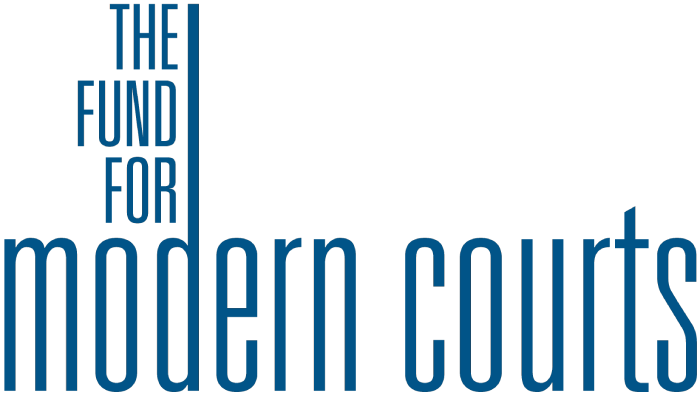March 22, 2004
In March, The Fund for Modern Courts hosted a public forum, Justice for All: Accessing Quality Justice in New York State, at the Progressive Democrats Political Association in Brooklyn. The room was filled to capacity with citizens concerned about their ability to access fair and efficient justice. Councilwoman Yvette Clarke along with her mother, former Councilwoman Una Clarke, who provided the venue for the forum and who is also the president of the political association, were among the concerned group of citizens in attendance.
Forum panelists included Modern Courts’ Board Members Alfreida Kenny, Esq., Robert Newman, Esq., and Ken Jockers, Modern Courts’ Executive Director. Panelists discussed proposed judicial reforms to improve the administration of justice in New York State, such as the Unified System’s Court Restructuring proposal and Judicial Selection reform. Information for individuals who find themselves embroiled in the justice system was also presented.
Alfreida Kenny engaged the audience in a lively discussion about New York’s complex court system, and how the Unified Court System’s proposal to consolidate the 11 courts of record into two, the Supreme Court and Surrogate Court, would provide for a more user-friendly and navigable system. Violet Moss, Modern Courts’ Director of Advocacy and forum coordinator, added that the court consolidation would be especially helpful to domestic violence victims, who currently have to go before as many as four different judges in three different courts.
Judicial Selection Reform discussion was lead by Ken Jockers. Jockers pointed out that the current process for selecting judges, which entails judges being nominated by party screening panels who are then selected as the candidate by delegates at judicial nominating conventions exposes judicial candidates to political pressures and may impede his or her ability to be free and impartial. Conversely, a system that requires that an independent nominating commission comprised of a diverse panel of representatives who make candidate recommendations for appointment better insulates judges from political pressure and reduces the corruption factor. Most importantly, people can be more confident about receiving a fair impartial hearing.
The forum ended with Indigent Defense 101, presented by Robert Newman, who is also an attorney for the Legal Aid Society. Robert Newman talked about what rights one is afforded when they are arrested or find themselves embroiled in the system. Information included basic but important information about arraignment and individual rights.
